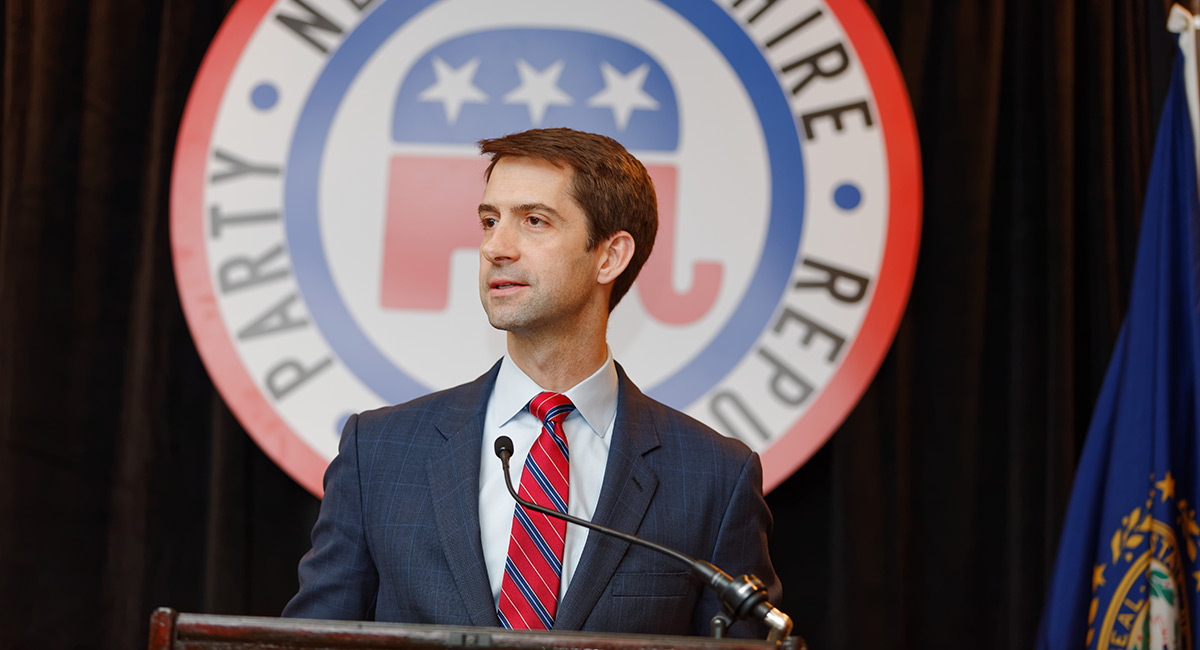For decades, politicians have followed the maxim that Rahm Emanuel, Barack Obama’s chief of staff, actually said out loud, “Never let a crisis go to waste.”
He was referring to Obama’s using the Great Recession, caused by a meltdown in the housing sector, to ram through a substantial expansion of the federal government’s intervention in the health care sector. Yet Obamacare was certainly no remedy for what caused the economic cataclysm. Similarly, George W. Bush fallaciously linked the already demonized Saddam Hussein, the despotic ruler of Iraq, to the 9/11 attacks in order to justify a military intervention in yet another Muslim country—the very grievance that motivated the attacks in the first place.
Bush’s disastrous invasion and occupation of Iraq turned out to be one of the worst foreign policy blunders in American history. Now, attempting to take advantage of the COVID-19 pandemic, another politician and his fellow anti-China hawks are hard at work trying to take advantage of China’s unconscionable secretiveness during the epidemic’s outbreak to stoke military tensions, and the risk of war, with that nuclear-armed power.
The politician is Senator Tom Cotton (R-Ark.), a China hawk before the pandemic, who now believes the COVID-19 virus accidentally escaped from a lab in Wuhan and that the Chinese purposefully failed to close their country to the world to prevent the virus’s spread in order “to ensure the Chinese economy wasn’t the only one to suffer.”
Even if these dubious claims were true, one wonders how that relates to needlessly aggravating military tensions with China by building up the already heavy U.S. military presence in East Asia and selling more arms to Taiwan. Unfortunately, Cotton has the attention of President Trump, who is eager to shift blame to China from his own failures in responding to the politically explosive COVID-19 crisis at home.
At a time when the free-spending Trump and Congress have racked up record federal budget deficits, even before the onset of the pandemic, and will spend trillions more on economic stimulus after its onset, Cotton has proposed an expensive $43 billion FORCE (Forging Operational Resistance to Chinese Expansion) Act to build up U.S. military forces to project power in the Pacific. Even the name of the proposed legislation indicates that Cotton is attempting to intimidate China. But the bill goes further, building a new submarine and more jet fighters for Asian power projection. He also wants to provide more arms to Taiwan, a move that is assured to make the Chinese apoplectic.
Yet Cotton, like Emanuel, is not bashful about taking advantage of a crisis to expand government. Cotton crows about the COVID-19 crisis changing American public opinion about China, “More Americans than ever, more Asians than ever, recognize that China is a pariah state, and we ought to treat them like a pariah state.” Furthermore, he proposes spending money to solve “longstanding problems” having no relationship to the current crisis, asserting, “I believe there will be more political support now.”
For example, he proposes deploying more U.S. medium-range missiles in Asia to counter Chinese mid-range missiles, which might have a similar escalatory effect to that of the Cuban Missile Crisis—this time, with the U.S. rashly intruding into another great power’s sphere of influence.
Perhaps a tell of Cotton’s underlying agenda is his proposal to spend billions counteracting the virus’s ill-effects on the defense industry and to develop new manufacturers for weapons components to avoid single sourcing. This proposal is especially preposterous because, although Trump has invoked the Defense Production Act, it was only to keep states from closing meatpacking plants. The defense industrial base is likely to have only short-term effects from the virus. Historically, the government’s artificial creation of dual sourcing for weapons components has been expensive and created only fake competition between companies. Thus, Cotton’s program smacks of welfare for the military-industrial complex at a time when the country is in a pandemic-induced recession (or worse) and budget deficits and the national debt are soaring.
In fact, because of such fiscal calamity, the United States should do just the opposite of what Cotton proposes, following President Trump’s initial inclination to let regional allies assume more of the burden for Asian defense. Japan, South Korea, Australia, New Zealand, Singapore—all now wealthy—and other Asian nations, could take over more the burden for their own defense or even band together to counter China. However, historically, great powers usually want a sphere of influence for security purposes; the United States, for two centuries, has tried to dominate the entire Western Hemisphere with the Monroe Doctrine. Similarly, China wants a security zone in East Asia, but currently faces containment by U.S. forces and bases and their allied counterparts.
In the last 500 years, there have been only a few cases in which rivalry between an established power and a rising power has not ended in a hot war. One was the Cold War in which both powers had nuclear weapons and the other was during the 19th century, when established Britain and the rising United States were bitter geopolitical rivals, but had rich commercial relations and a broad ocean between them that hampered direct attack.
The established United States and a rising China have all three of these factors that promote peace, but only if the United States backs off containment and respects China’s historic desire for a surrounding zone of security. Cotton’s proposal does just the opposite—it would needlessly increase bilateral tensions and could even lead to war between these two great powers.

















